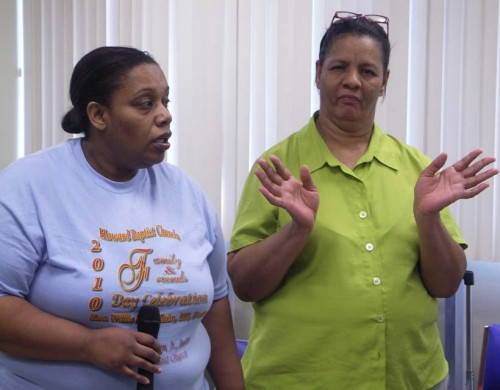
HTHA denies woman’s discrimination charge
March 7, 2011Thurs., March 10
March 10, 2011In the health care industry, it’s been a familiar formula for decades.
The federal government underpays hospitals for treating Medicaid and Medicare patients. Most, unable to cover their costs with these payments, charge private health insurers extra to make up for these shortfalls, and for the money they lose treating the uninsured. Many times, insurers are forced to recoup this money by raising premiums for the businesses and individuals they cover, and the cost of private health insurance goes up. This is called cost shifting.
Now, the changes brought about by healthcare reform are making it necessary for hospitals and insurers to reexamine the cost-shifting formula and seek other solutions.
The practice of cost-shifting, unfair to the businesses and policyholders who finance it, worked to some degree in the 1990s when the government insured about 20 percent of Louisiana’s population through Medicaid and Medicare.
Today approximately 39 percent of Louisianians get their insurance from the government. This number is expected to climb to more than 50 percent by 2014 because of the expansion of Medicaid eligibility by the Patient Protection and Affordable Care Act (PPACA).
Industry experts estimate that today, some 17 cents of every private insurance premium dollar offsets government underpayment for Medicaid and Medicare patients and uncompensated hospital treatment for the uninsured, and this number is certain to rise as the government-insured population increases. Also, because of other PPACA provisions, in 2016 Louisiana hospitals could lose hundreds of millions of dollars the government currently pays them to treat the uninsured.
This new law also requires private health insurers to subject any rate increases to a new federal standard of “reasonableness.” “Reasonable” has yet to be defined, but since the Obama administration denies that cost-shifting even exists, it seems unlikely that raising rates to cover higher levels of cost-shifting will be considered “reasonable.”
This means that health insurers will no longer be able to ask the business community and privately insured citizens to pay higher premiums to compensate hospitals for government underpayments, since this would surely cause premiums to rise to “unreasonable” levels.
So the federal government has health insurers and hospitals boxed in. By refusing to admit that public sector underpayment inevitably shifts costs to private insurers, and failing to acknowledge that Medicaid and Medicare cuts take even more out of the pockets of business owners and privately insured individuals, it has created a model that will no longer work.
At this watershed moment in the history of employer-based health insurance, hospitals and insurers must work together to find other financial models.
Working together, in partnership, the healthcare industry in Louisiana needs to take the first bold steps toward a model that rewards efficiency and quality of care. Together, we must search for and agree upon levels of payment that will sustain quality care for our patients and customers, but not cause excessive pain for our business community and privately insured citizens.
If we could achieve this balance and work together as partners, I am convinced we could then begin meaningful discussions about new, innovative payment models and other measures that would increase the quality of care and lower the cost of healthcare in our state.






